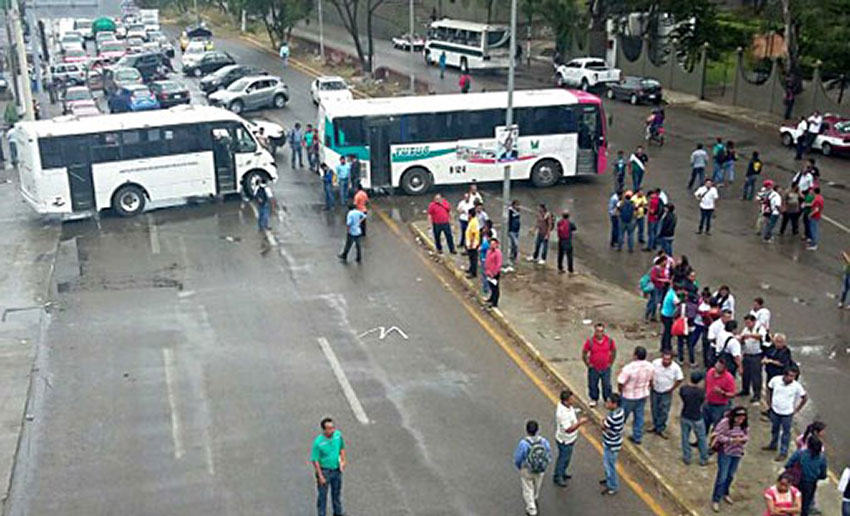The Oaxaca local of the CNTE teachers’ union has taken advantage of the repeal of the previous government’s educational reform to once again take control of the allocation of teaching positions in the state.
The union is also in charge of teacher transfers and promotions in the southern state for the first since the 2013 educational reform was implemented, according to a report published today in the newspaper El Universal.
As before, participation in union protests is a key requirement if teachers wish to advance.
In order to be appointed to a new position or to be considered for transfer or promotion, the CNTE has announced that teachers must prove that they have participated in 80% of protests, blockades, marches and other union activities.
It also said that teachers who belong or have belonged to the dominant SNTE teachers’ union or other rival groups, or who were appointed or promoted while the previous government’s educational reform was in effect, will not be allowed to apply for appointment, transfer or promotion.

Section 22 spokesman Wilbert Santiago Valdivieso said that teachers need to show evidence of their participation in CNTE activities in order to prove their loyalty to the union.
“Here in Oaxaca we have the spurious [section] 59 [of the SNTE] and SITEM [the Independent Union of Education Workers] . . . I can’t give an application to a comrade who is corrupt . . . who’s in the group of [former SNTE boss] Elba Esther Gordillo or to one who supported the imposition of the educational reform . . .” he said.
“Proof of [CNTE] union participation is ratification of the affiliation of colleagues.”
The CNTE – especially locals in southern states – vehemently opposed the educational reformed implemented by the government of former president Enrique Peña Nieto, and organized countless protests against it.
The current government’s education reform was declared constitutional in May, bringing to an end all provisions in the previous administration’s general teaching service law including controversial teacher evaluations.
Source: El Universal (sp)
